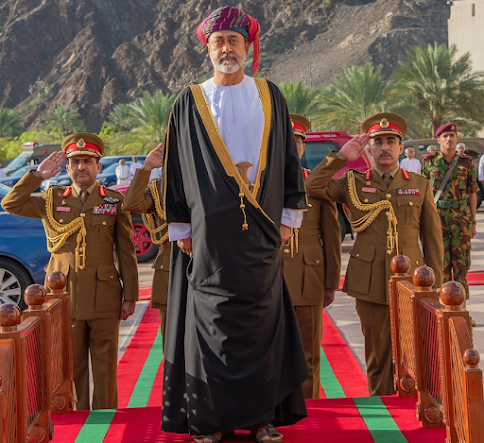
The Mufti of the Sultanate of Oman issues an official statement about the death of Sinwar
A few hours after the Grand Mufti of the Sultanate of Oman, Sheikh Ahmed bin Hamad Al-Khalili, mourned the Palestinians and “the entire nation for the martyrdom of the head of the political bureau of the Hamas movement", Yahya Sinwar, calling on the nation to support the resistance with all its might, he issued a strongly worded second statement against anyone who mocks the martyrs of the resistance. His Eminence said in a statement on Saturday: “No one mocks the honorable people who die as martyrs in the fields of honor in jihad for the sake of God except the vile, who has been deprived of a mind that enables him to think, (And he for whom Allah has not given light - for him there is no light).
The Grand Mufti’s statement came said, Friday: “We received with pride and honor the news of the martyrdom of the heroic leader Yahya Sinwar, after he spent a period in jihad and the enemy was unable to capture him.” He added, praising Sinwar: “Congratulations to him, as he passed away facing the enemy and not turning his back. For that, we, the struggling Palestinian people, and the entire nation offer our condolences.”
Al-Khalili continued: “It is a matter that calls for the entire nation to unite, and for its scholars to rise like the wind sent forth to defend its rights, and to urge it to stand up to the Zionist entity, and to support this resistance with all its might.”
The Grand Mufti of Oman praised what Sinwar had offered, stressing that “he passed away to his Lord after a journey full of holy jihad, and joined those who preceded him, men who were true to their covenant with God,” expressing his hope that those who follow him “will fill his void with the same determination and resolve.”
The Grand Mufti of Oman concluded his post by saying: “The entire nation must unite, and its scholars must rise like the wind sent forth to defend its rights,” he said. We received with great pride the news of the martyrdom of the heroic leader Yahya Sinwar, after a long career in the holy jihad, following in the footsteps of his jihadist predecessors. We hope that someone will soon succeed him to fill his void with the same determination and resolve. The entire nation must unite, and its scholars must rise like the wind to defend its rights.

















































